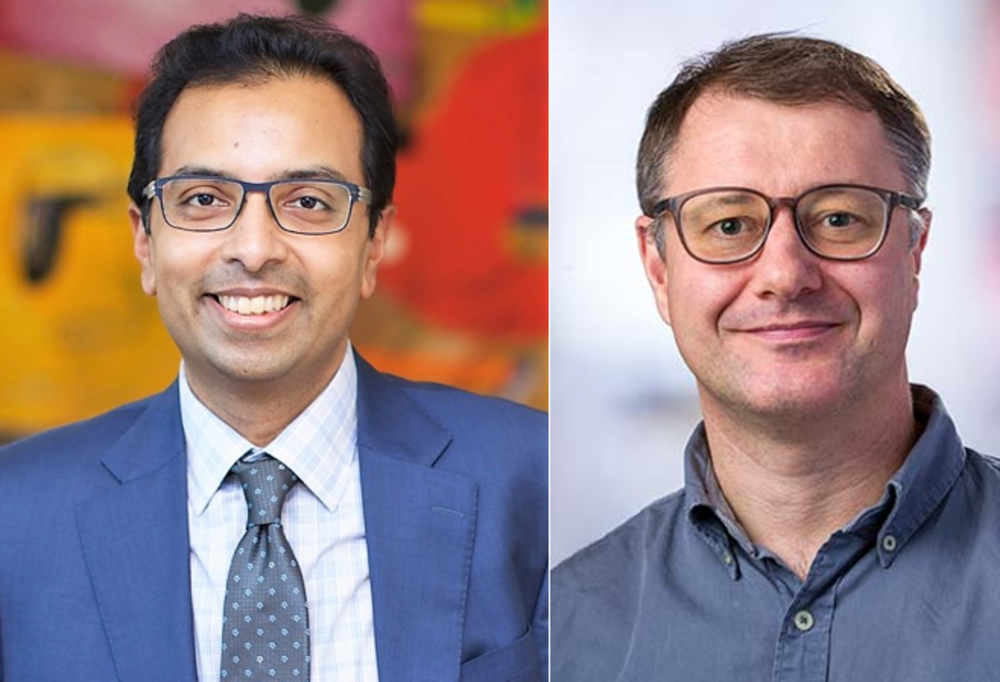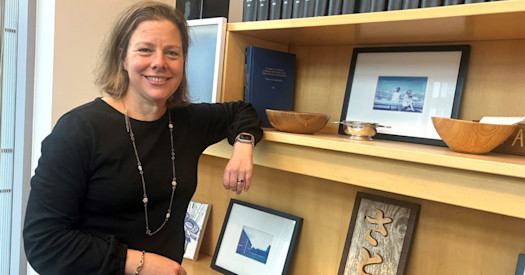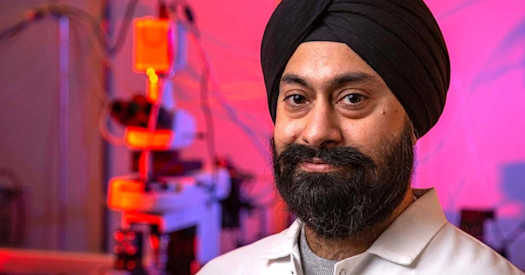
Dr. Venu Pillarisetty (left) and Dr. Evan Newell
More than 200,000 people in the United States are expected to die in 2022 from pancreatic and kidney cancer, according to the American Cancer Society. That represents about one-third of all cancer deaths projected this year.
That number is 16 times the total number of this nation’s oncologists. Put another way, that is more than four times the combined total of employees at UW Medicine, Seattle Children’s, and the newly established Fred Hutchinson Cancer Center.
Two BBI members are embarking on research to lower deadly projections of these two cancers.
Dr. Evan Newell, an associate professor in the Fred Hutch Division of Vaccine and Infectious Disease, and Dr. Venu G. Pillarisetty, professor of surgical oncology at UW Medicine, are working together on developing personalized T cell therapeutics that target an individual patient’s cancer. Their project is funded by a $150,000 BBI grant awarded in January.
“This study exemplifies the concept of precision medicine,” Newell said. “We aim to establish a platform through which one can identify features to help predict an individual patient’s response to diverse immunotherapies.”
The goal of the project is to identify specific tumor-infiltrating T cells that would facilitate tracking of tumor-specific immune responses and to develop personalized T cell therapeutics for pancreatic and kidney cancer patients. Newell and Pillarisetty will be using living patients’ tumors.
“The tumors are from resection surgeries, not from mice,” Newell said. “Real tumors from real people.”
He and Pillarisetty are acquiring the tumor samples from Northwest BioTrust, part of the Institute of Translational Health Sciences, which is a partnership among the UW Medicine, Seattle Children’s and the Hutch. It is one of more than 50 clinical and translational science award sites nationwide seeking to advance biomedical research and training, and is funded by National Institutes of Health.
The BBI-funded study has two specific aims:
• Comparing and optimizing approaches for efficient expansion, isolation, and deep T cell receptor sequencing of tumor antigen specific T cells; and
• Using single-cell sequencing and tumor-slice imaging to determine observable traits and localization of tumor-infiltrating T cells in tumors.
Pillarisetty, who has been studying immunology for over 20 years, noted “this work is a passion of mine,” in addition to teaching oncological surgery at UW Medicine.
That passion led him to join the BBI grant with Newell, who arrived at the Hutch three years ago after serving as a principal investigator at the Singapore Immunology Network, a research and development center focusing on infectious diseases, cancer, and immune dysfunctions.
“The entire field of tumor immunology is focused on trying to get the immune system to kill cancer cells and not kill anything else,” Pillarisetty said. “In some ways, our study represents an interesting pairing. Kidney and pancreatic cancers are very different and respond differently to immunotherapies. Up to this point, pancreatic cancer has not really responded very well to immunotherapy, while kidney cancer has.”
Others conducting similar research, BBI members Drs. Joshua Veatch and Philip Greenberg at the Hutch, are “pioneers using T cell receptors against tumor antigens,” Pillarisetty said.
“Overall, our project is exploratory,” he said. “The big question is can you identify tumor-reactive T cell clones, defined by their own fingerprints of DNA? Killing is not the hard part for the immune system. The hard part is precisely killing the right thing.”
That elusive immunotherapeutic solution that kills “the right thing” is not applicable just to pancreatic and kidney cancers, according to Newell.
“Once we identify and validate T cell receptors, we will work to optimize T cell products for personalized adoptive T cell therapies,” he said. “In the future we will also extend our work to other solid tumor types for which University of Washington is a high-volume center. These include melanoma, liver cancer, and sarcoma.”


